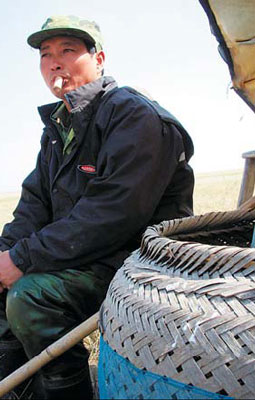"Located on the East Asian-Australian migratory shorebird flyway - one of eight major bird migration routes in the world - Dongtan (wetland) is the first stopover place for many birds heading north in the spring and their last food supply station when flying back to their wintering ground in the southern hemisphere in the fall," Song Guoxian, director of the reserve, tells China Daily. "To chart their migration patterns, we need to catch some of the passing waders and tag metal rings or colorful bands on their legs. This is the universally-accepted method of banding."
Founded in 1998, the reserve on the country's third largest island, after Taiwan and Hainan, started the banding exercise in 2001. It rings an average of 6,000 birds during the two banding seasons of the year. "The spring season, from late March to mid-May, is shorter and busier as the shorebirds hurry north for better nesting spots. While flying home in the fall, the birds have already bred and their journey south is often twice as long as the flight north," Song says. "A dozen of our reserve's managers and patrolmen will handle the birds trapped by Jin and another expert catcher - weighing, measuring and examining them for molt."

Jin Weiguo blows a bamboo whistle to lure shorebirds.
The reserve has a database for each banded bird and shares information about the banded birds and bird recoveries with the National Bird Banding Center of China and similar organizations worldwide.
"Last year I caught 4,000 birds for the reserve," Jin Weiguo says. "This year, I expect to catch more."